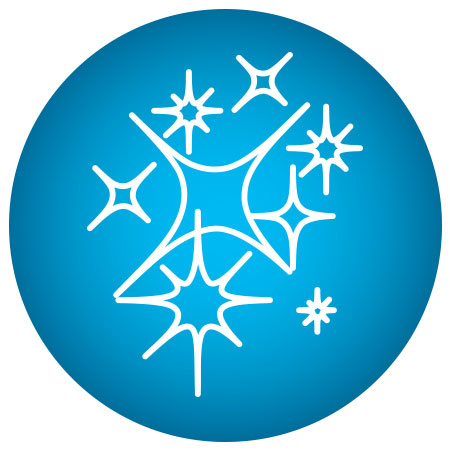The Tishah B’Av Jew

Tishah B’Av is the Yom Tov of the shattered person, one with a lofty, unique soul

Then there’s the Chol Hamoed Jew who only works for necessities. The average Jew builds up his business and uses his income to support Torah just as the work we do during the six days of the week provides for Shabbos.
There’s another category of Jews compared a specific moed (holiday). These Jews aren’t exalted or celebrated — to the contrary, they’re mourned and grieved over. This is the Tishah B’Av Jew.
Yirmiyahu Hanavi says, “Kara alei moed, He called upon me a moed” (Eichah 1:15). This refers to Tishah B’Av, which is given the status of a Yom Tov, thus we don’t don tefillin nor recite Tachanun. But Tishah B’Av is a broken Yom Tov, a Yom Tov “lishbor bachurai — of broken young men.” (ibid)
Tishah B’Av is the Yom Tov of the shattered person, one with a lofty, unique soul. But this person isn’t actualizing his essence; it’s been trampled and destroyed.
Tishah B’Av won’t forever remain a day of tragically unutilized potential. Zechariah Hanavi promises (8:19), “The fast of the fourth [month — Shivah Asar B’Tammuz] and the fast of the fifth [month — Tishah B’av] will be for the Jewish People for joy and happiness and good moadim.”
When Mashiach comes, bimheirah b’yameinu, amen, along with Tishah B’Av, every Jew, even the most broken, will become whole.
—Emunas Etecha
Sparks
How do we help our children cope with loss?
Perl (Abramovitz) Klein, counselor and lecturer:
This has been a year of suffering. Tishah B’Av is a good day to talk to our children about losses and help them process anything difficult they’ve witnessed or heard about. The key lies not so much in technique or skill, but in our deeply rooted beliefs.
The first rock of resilience is our knowledge that it is Hashem who exposes our children to loss. A healthy parent doesn’t want his child to suffer. It’s hard to face our children’s pain. Hashem loves our children much more than we do. It is He Who put trauma in their lives.
Our instinct is to shield our children. We don’t want them to see pain. We want to minimize or “hurry” away the pain. However, as deeply as they are able to feel the grief, that’s as deep as the healing will be. Experiencing deep grief opens up a space that will later be filled with joy.
Allowing our children to fully grieve is a great gift. We are our children’s most powerful cheering squad to encourage them to push past the pain and go on with life. We need to access the belief that our children have the kochos hanefesh to struggle, survive, and ultimately flourish.
“No matter where a Jew travels to, he is getting closer to Eretz Yisrael.”
—Rabbi Nachman of Breslov
Ignite
The pasuk that’s keeping me going:
“Kavei el Hashem, chazak v’ametz libecha, v’kavei el Hashem. Hope to Hashem. Strengthen yourself and He will give you courage, and hope to Hashem.”
A friend of mine called from Miami because she kept on hearing drilling and seeing water damage in her apartment in the Surfside condo complex. As of today, June 29, she’s trapped under the rubble of her collapsed condo. She has no immediate family.
Some friends of hers called me for help resolving her final affairs. I encouraged them to daven for her.
As I keep hearing dark news, I need to keep my hopes up, and I do it with this pasuk. And when I feel myself giving way to despair, I strengthen myself with this pasuk again.
Hashem can do anything.
Rebbetzin Sarah (Shulevitz) Vorhand from the Upper West Side and Miami
Wonders of Jewish History #3
The greatest wonder of history is the eternity of the Jewish People. Here, we explore moments when, looking back, we see Hashem’s hand at the helm orchestrating events or planting the right person at the right time.
From brutal Roman persecution, to Islamic oppression, to the Crusader massacres, the situation for Jews in Eretz Yisrael was unbelievably difficult during the past two millennia. Yet despite the constant upheaval and tyranny, there was never a period throughout the entire galus when Eretz Yisrael was completely empty of Jews. There was always a small community, even if it was comprised of few unlearned individuals.
This is a crucial miracle of our history because, as the Chasam Sofer notes (Teshuvos, Yoreh Dei’ah 234), without a Jewish community in Eretz Yisrael, our calendar is invalid. True, Hillel Hasheini sanctified every Rosh Chodesh, but only on condition that there would be a continuous presence of Jews in Eretz Yisrael.
Without Rosh Chodesh, there’s no Yom Tov, and without Yom Tov there would be no Jews, because it is the holiness of Yom Tov that keeps us going in galus.
Still Singing
My mother barely spoke of her experiences in Auschwitz, where she was incarcerated as a young girl. Sometimes, she’d casually mention something as a “by the way.” That’s how I found out that she, along with some of her friends, fasted two days for Tishah B’Av.
Knowing that Jews would not eat from sundown to sundown, the Nazis gave them food only after it had already gotten dark on the night of Tishah B’Av. The next day, they gave them food only during the day…
It didn’t dawn on these starving girls that perhaps they would be exempt from fasting, so they didn’t eat for two days in a row. My mother didn’t think her actions were exemplary, worthy of mention and acclaim. To her, this was just what Jewish girls did.
Her job was to wash the windows in the guard towers where the SS guards were stationed with ready-to-shoot machine guns. From there she could see the trains arriving and the people being marched to the gas chambers.
In August 1944, when the Lodz Ghetto was liquidated, she saw a sight that would remain with her forever. A group of Bais Yaakov girls, around 12 to 13 years old, were marching toward their deaths with their madrichos singing “Ani Maamin.” At that point, people knew where they were going… Nevertheless, the girls sang.
As heard from my uncle, Reb Hirsh Leib Cohen
L’illui nishmas Blima bas Rav Yechiel Mechel Altman ztz”l
(Originally featured in Family First, Issue 751)
Oops! We could not locate your form.


